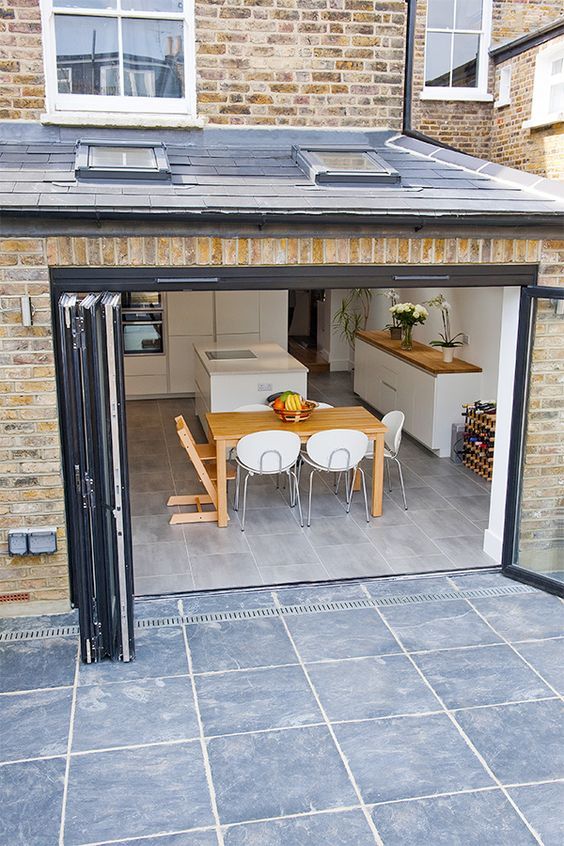Complete Guide to Selling an Inherited Property
Loss of a family member is often a traumatic experience that leaves their loved ones with emotions all over the place. If, for example, one of your parents died and left you the house as an inheritance, your first thoughts are most probably nowhere near ‘how to sell my house’ or ‘how to sell house fast’. However, due to several financial obligations that come with inheriting a property, you need to be aware of the fact that sooner or later, you will have to make up your mind about it.
While you might be set on keeping the house, there are several things that you need to take into consideration – one of them being the financial responsibility, and your ability to meet them. After all, even if you are not living in that house, you still need to pay, for example, the utility bills, as well as inheritance tax when you first get it. Another thing is the condition of the house. Sometimes, the inherited property in such a state, that living in it without renovating it first can be not only uncomfortable but also dangerous.
While we buy houses for cash, there are a lot of things that you, as an heir to the property, need to do in order for that to be possible. Here is everything you need to know about selling an inherited property, starting from the beginning.
Before You Sell – The Probate Process
Before you can legally sell the property, you might have to establish your relationship with it, for example, by applying for probate. To put it simply, probate is a legal process, during which the assets of a deceased person are being distributed according to their will. The matter is a lot easier if you are mentioned in the will as one of the beneficiaries.
While in most cases, you will need to apply for probate, there are some situations in which this is not really necessary. There is no need for probate if the person that died:
- had jointly owned land, money or shares – those will automatically go to the other owners who are still alive
- had only savings or premium bonds
In order to find out whether you actually need probate, you need to get in touch with every institution that holds the assets, including a mortgage company or a bank. This is even more important in your situation when you want to sell a house that you inherited.
Keep in mind that if you are stated in the will as an executor, you can apply for probate by yourself, or hire someone who will deal with it on your behalf – a solicitor, or another licensed person. However, if your name is not on the will, you will have to apply for the so-called ‘letters of administrations’, that can only be applied for by post.
The probate process can take anywhere between six and twelve months, sometimes longer, with the average being nine months. Sometimes it can be granted within a few weeks, but that’s rarely the case. When it comes to how much it will cost you, everything depends on who you will hire to work with you on it – the average cost of dealing with a probate claim is between 1 to 5 per cent plus VAT.
Selling an Inherited Property
If all the legal processes are completed, and you are still sure that you want to sell the inherited property, you have a few options on how to do it. Let’s take a closer look at them.
Estate Agent and Auction Route
Using the services of an estate agent is probably the most common way of getting the best price for the property. However, you have to keep in mind that it might take a lot longer than you expect – especially if the property you wish to sell needs some improvement, or a complete renovation. If the property is in good shape and located in a desirable area, you shouldn’t have any problem with finding potential buyers. Another thing you need to be aware of when selling the house with the help of an estate agent is that you will most probably have to pay additional fees.
The second option you have is selling the property on the action. While this process might take a while – sometimes even longer than when you do it with an estate agency – it is your best bet if you are looking for security and speed.
In most cases, the buyers will be asked to pay the deposit straight away. After that, they have to complete the sale, with the average time for that being 28 days. If they don’t, they will not only not receive their deposit back but will have to pay additional fees and penalties. This makes this option very safe – the chances of someone not paying for the property are slim.
Selling an Inherited Property with a Mortgage
Sometimes, the property you are trying to sell might still have a mortgage. In this case, there are a few things that a mortgage company can do. They can:
- request a full redemption – in other words, they may ask you to pay back the mortgage immediately. While they can do that, it doesn’t happen that often – as long as you are keeping up with the monthly payments, you should be fine.
- wait for the money from the estate to come through – the money can pay off either the whole mortgage or at least a part of it.
- ask you to take over the mortgage payments after the deceased person
- ask you to clear the mortgage debt with the help of endowment, mortgage protection policy or life insurance
When it comes to selling a property with a mortgage, it’s best if you contact a legal advisor, that will help you go through the contract, and make sure that everything is clearly stated –
be sure to pay special attention to the ‘Payment after death’ section.
Also, keep in mind that you are probably going to be asked to pay an early redemption penalty, as the terms of the loan will be ending before the date stated in the contract.
Taxes Connected with Selling Inherited Property
Selling an inherited property might require you to pay some taxes. To make sure that you know exactly what your obligations are, get in touch with a tax advisor or an accountant – they will be able to tell you exactly which taxes you need to pay, how long you have for that and how much they will be.
The taxes can vary. It is all dependent on several factors, such as where you are located, what was your connection to the owner, how much the estate is worth, and so on. For example, in the United States, only six states charge inheritance taxes. Those are Iowa, Kentucky, Maryland, New Jersey, Pennsylvania and Nebraska. On the other hand, in the UK, the inheritance tax needs to be paid on estates that are worth more than £325.000.
If you want to know how the situation looks like in your region, contact the tax advisor.
However, be aware of scammers. Before trusting a person with your property and documents, check their credentials on one of the many databases available online. It’s better to be safe than sorry after all, right?
The Bottom Line
An inherited house often reminds a person about the loved one they lost, which is why it shouldn’t come as a surprise, that many people decide to sell it, instead of keeping it or living there. However, selling inherited property is not an easy process. Selling a house is never easy, but when you sell one coming from an inheritance, you need to be aware that there are additional steps you need to take, that you wouldn’t have to if it were your primary residence.
We understand the struggle that one has to go through when selling an inherited home, and that’s why we created this guide. We hope that it was at least slightly helpful. Good luck!
Images source














